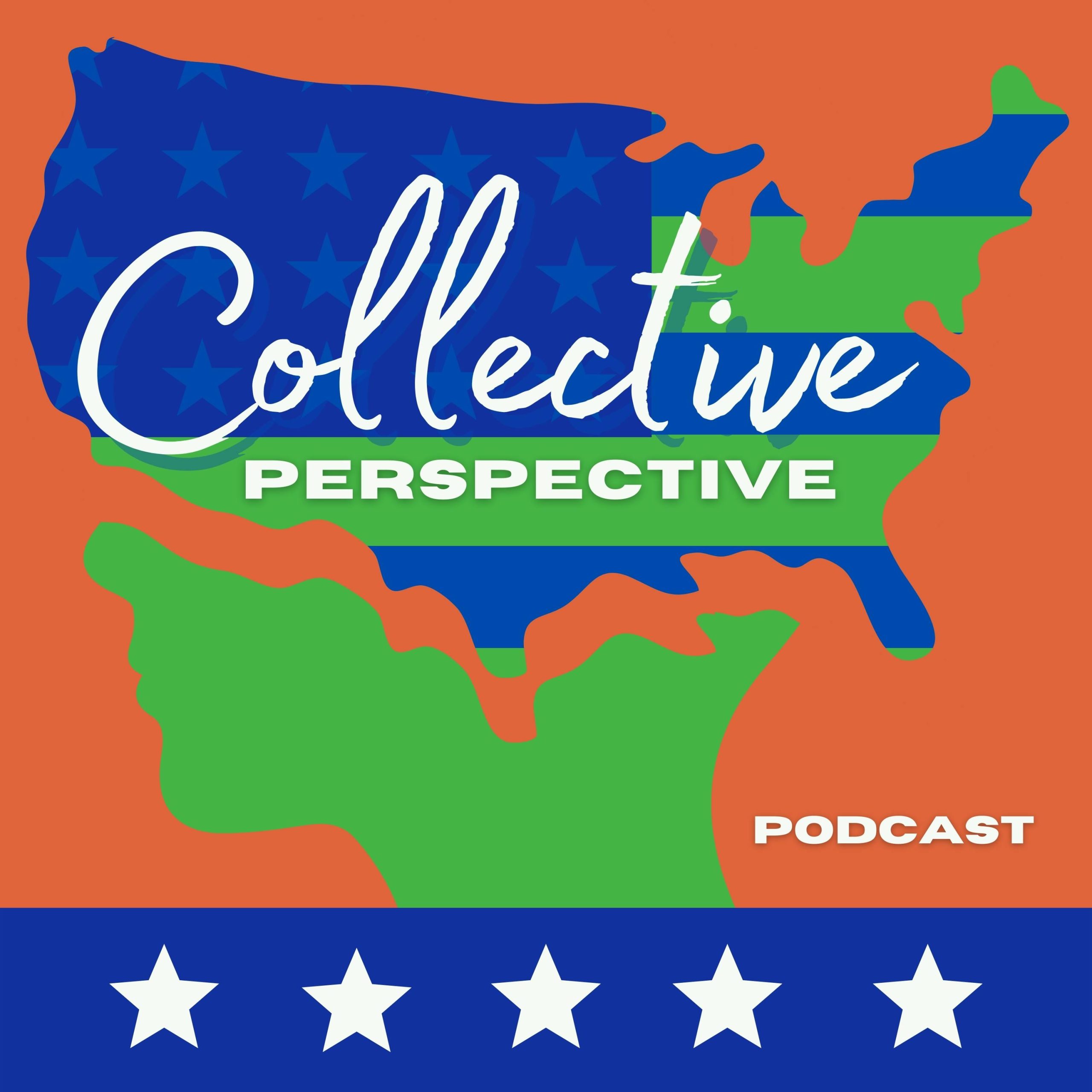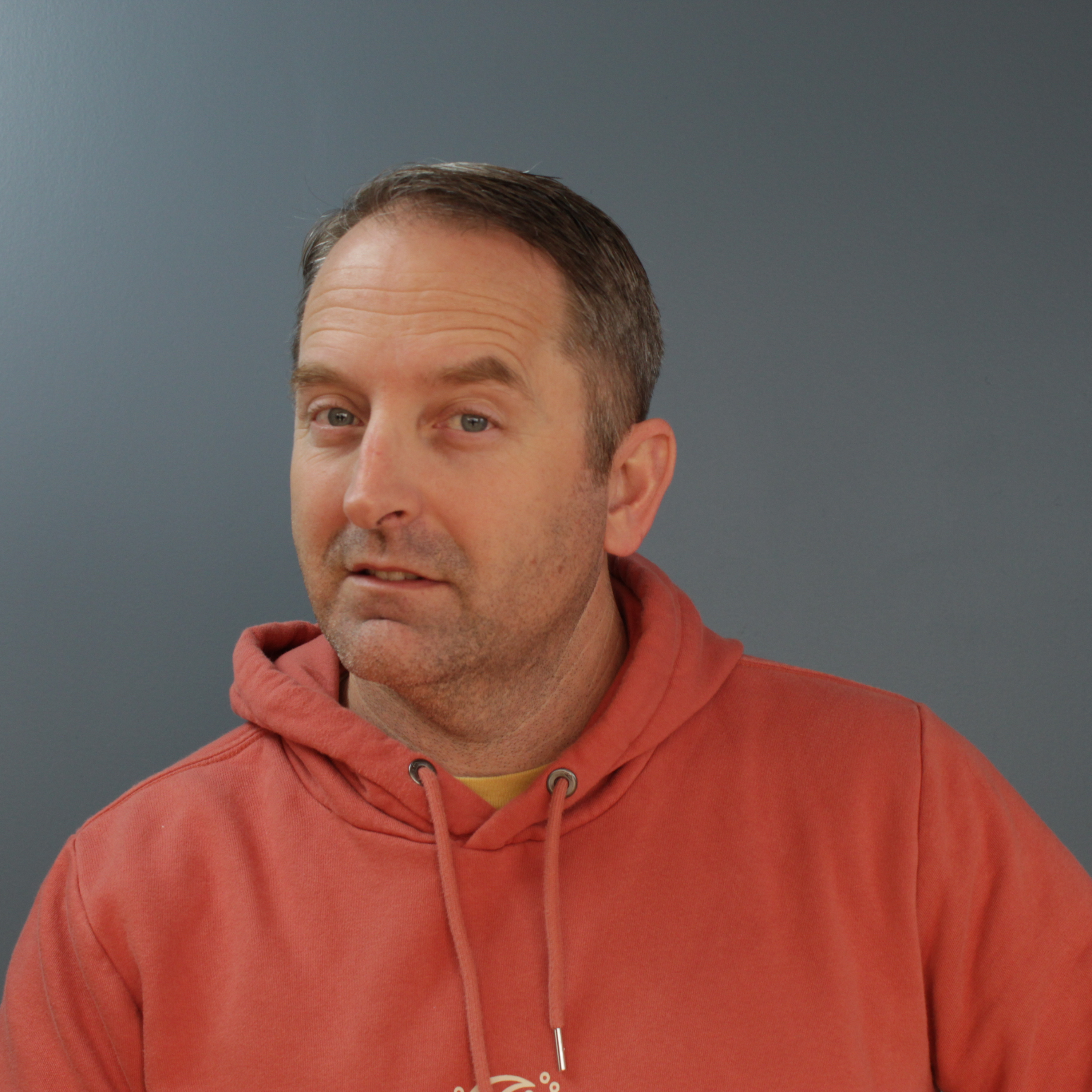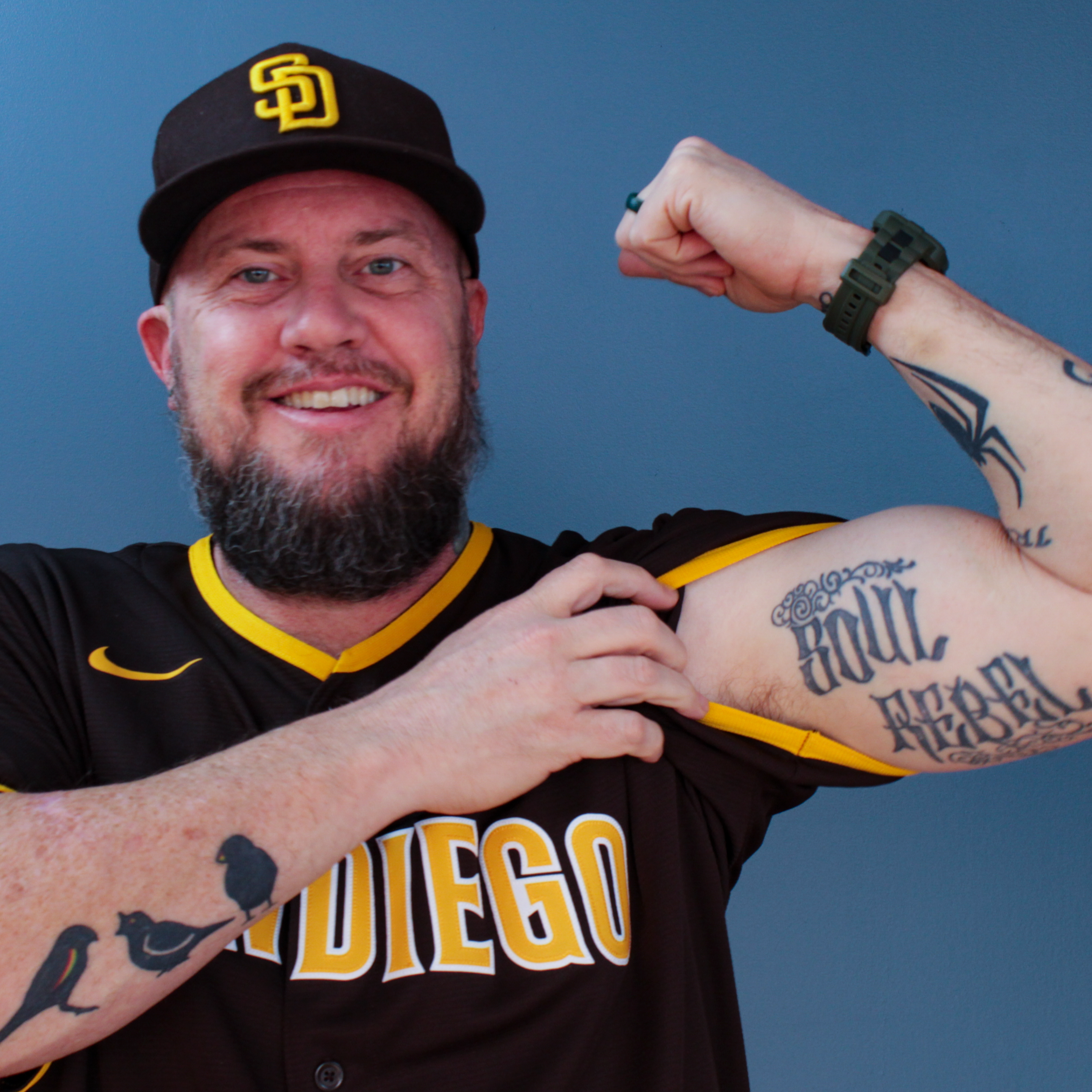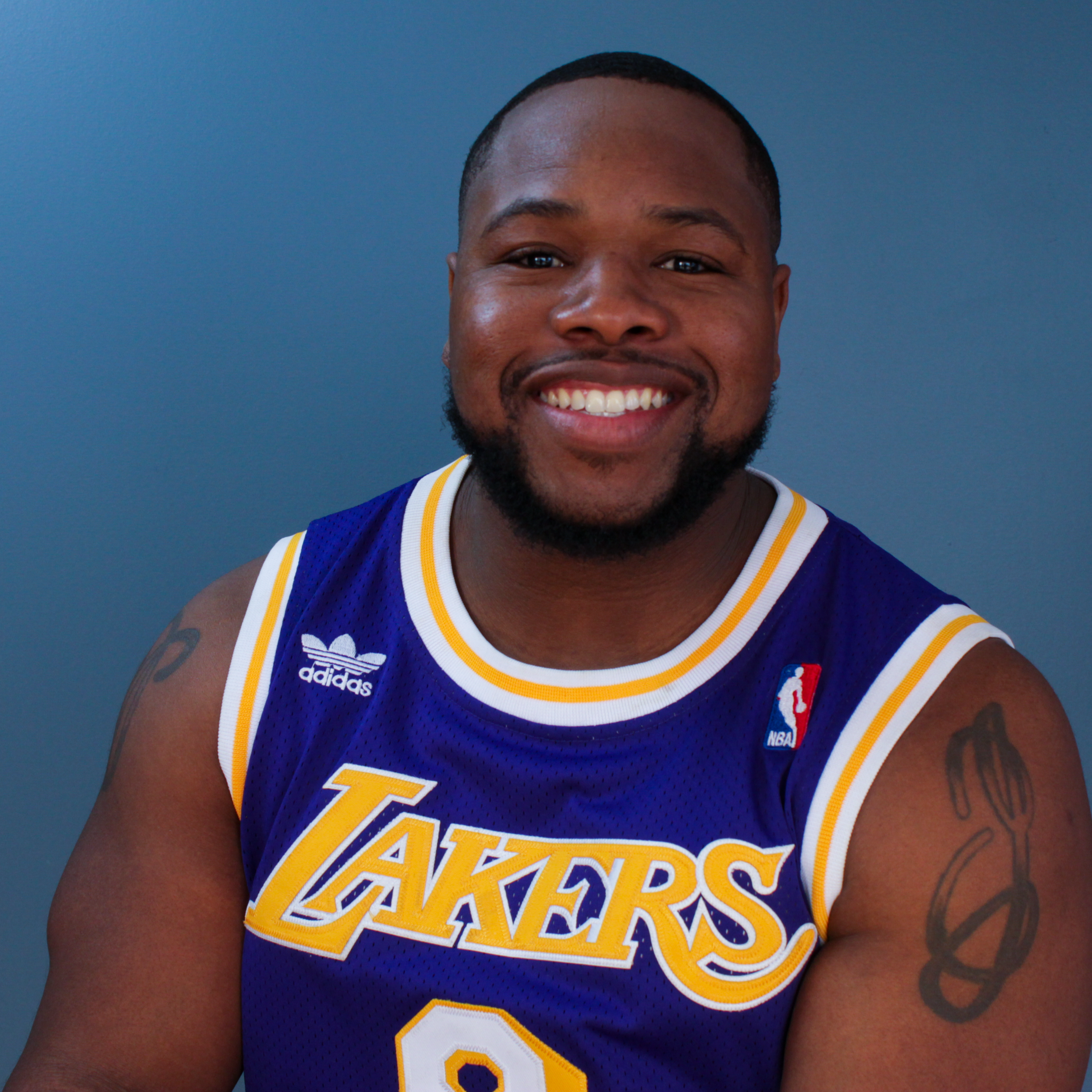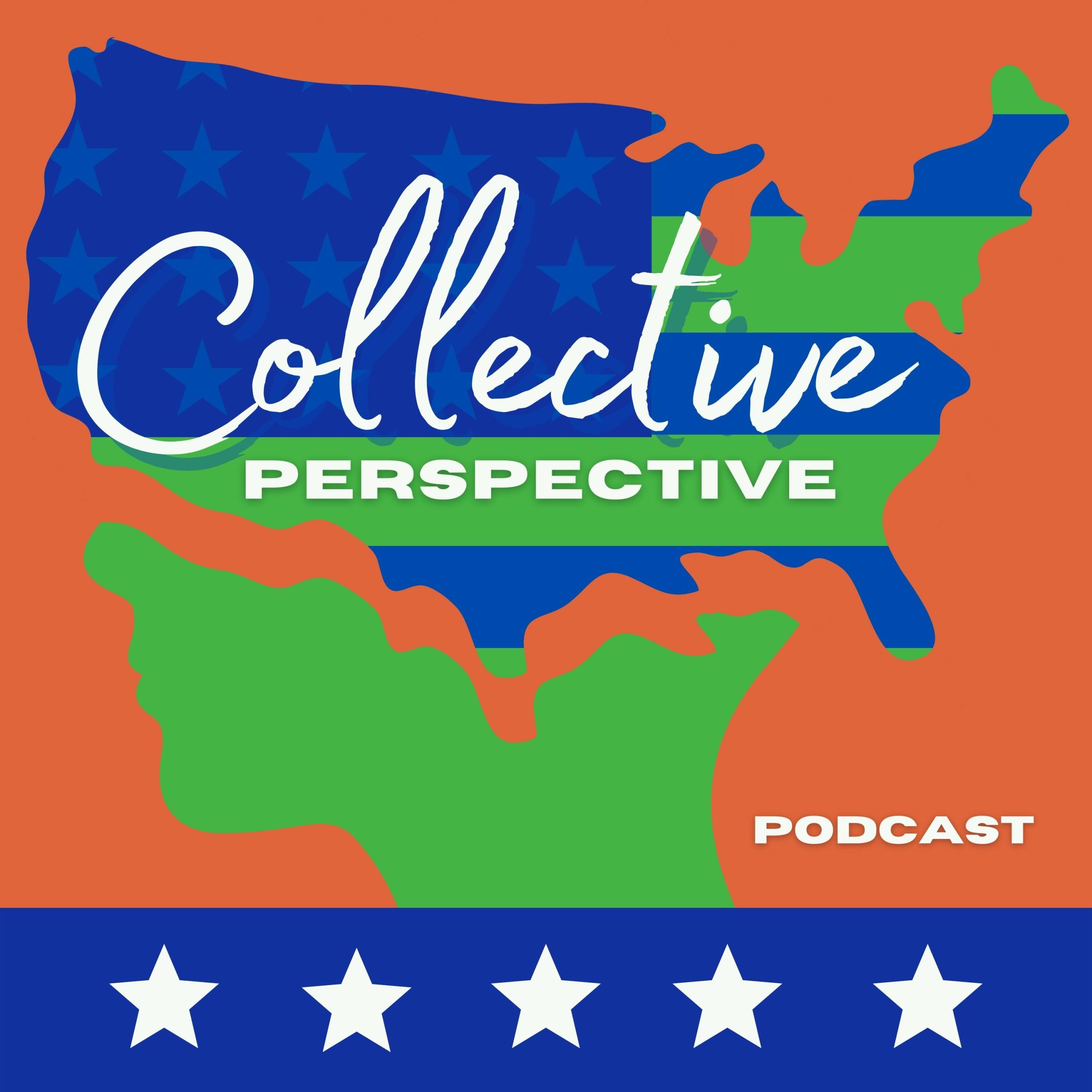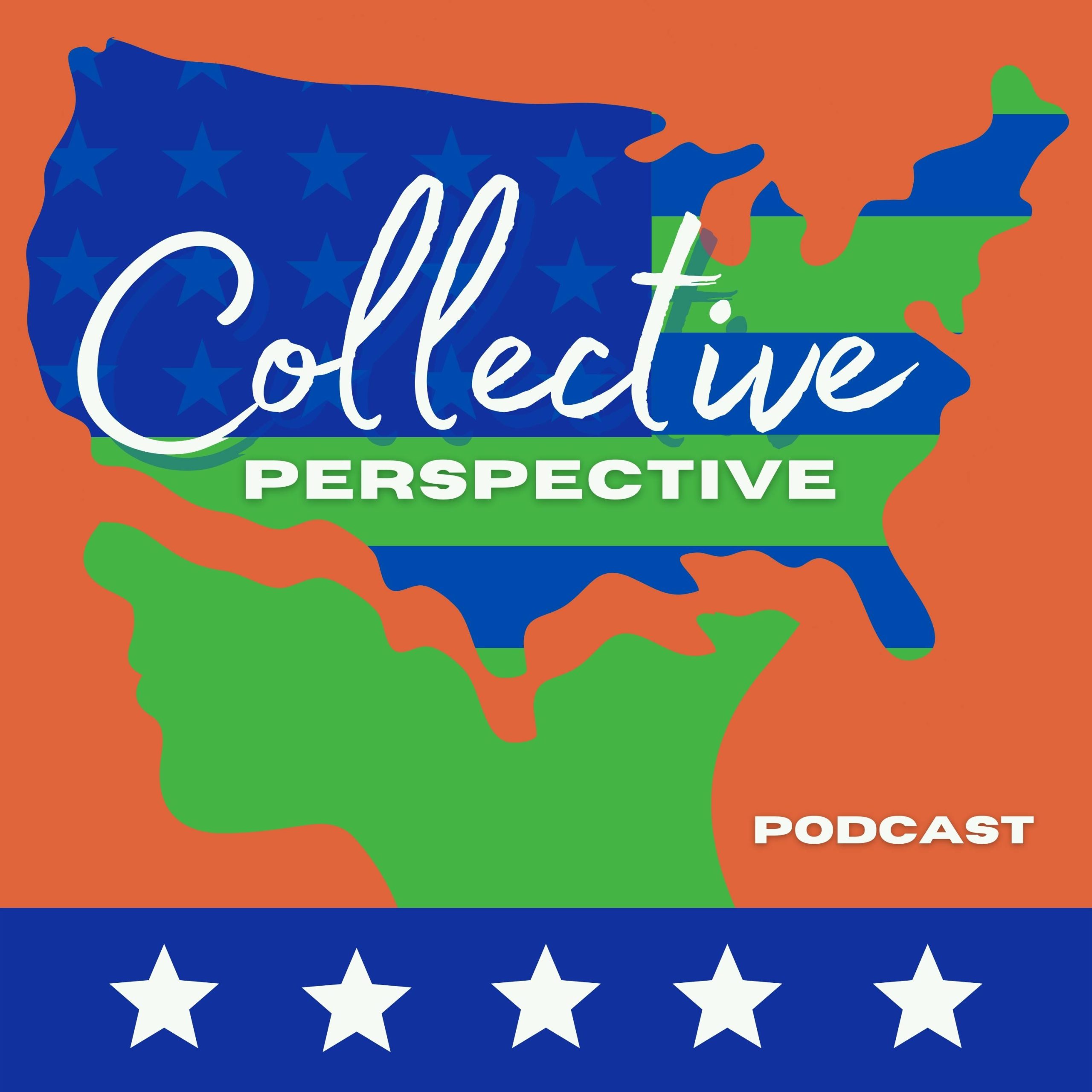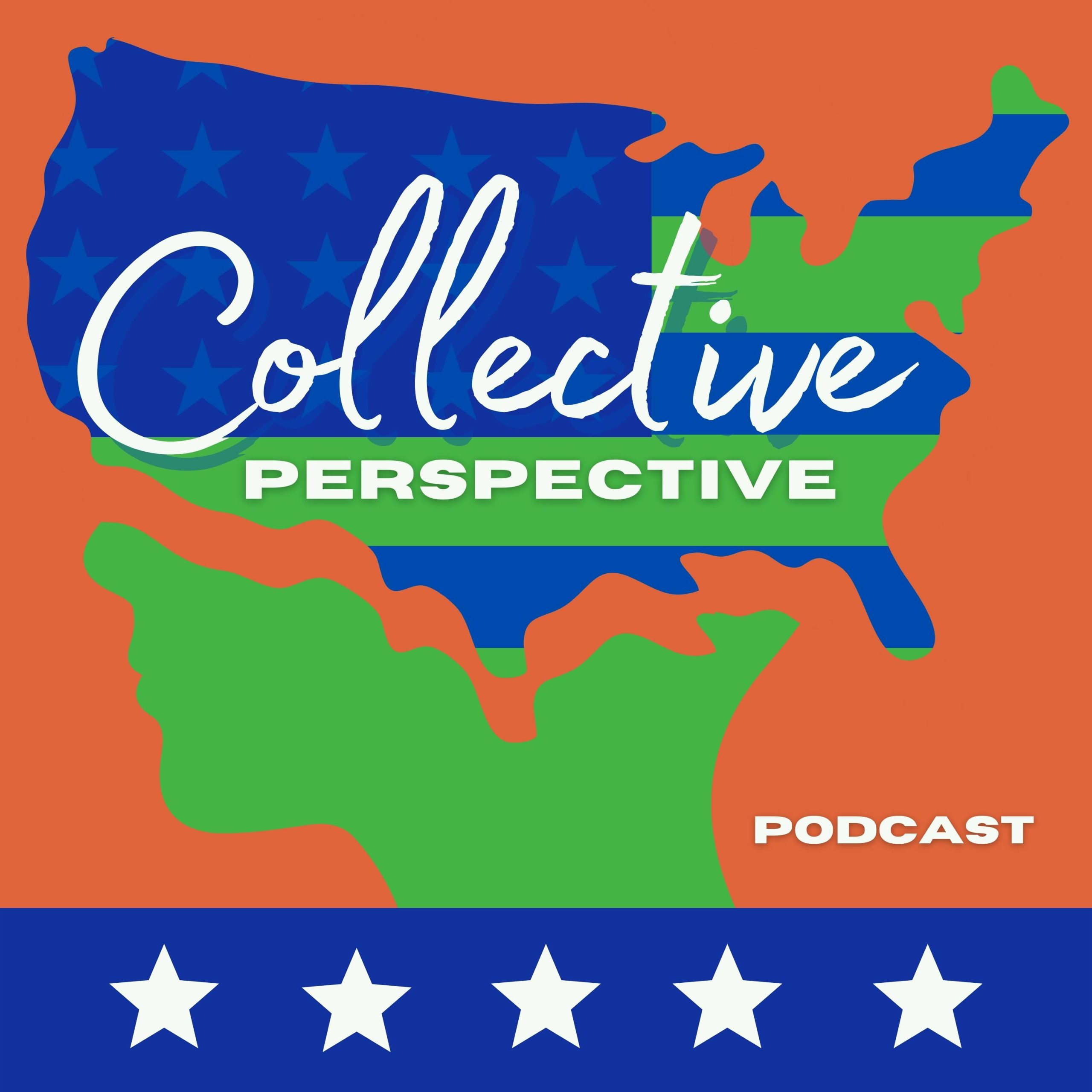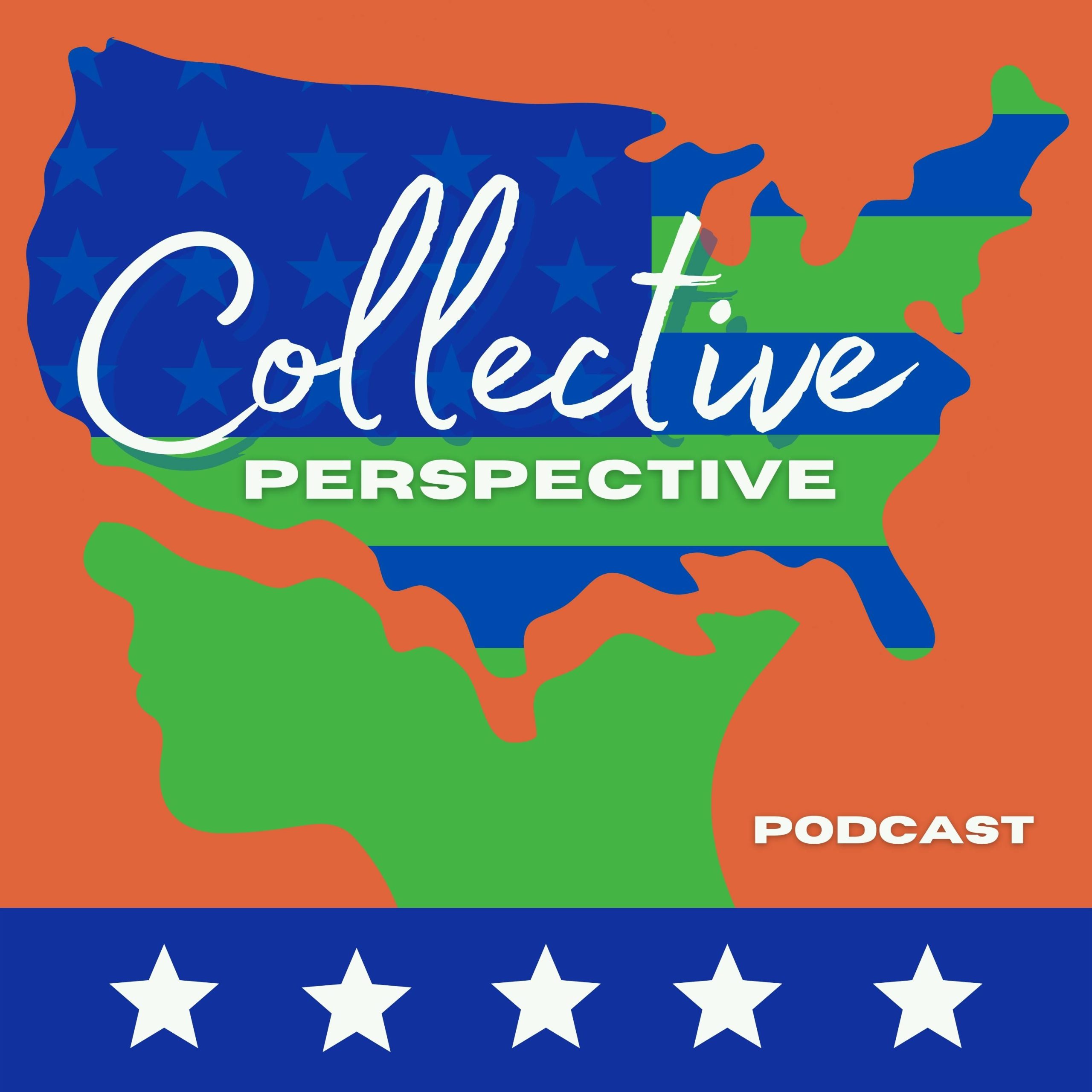Have you ever stopped to think about how you are being tracked and monitored through your online activity? From likes, comments, purchases…everything is being recorded and companies are profiting from your data. Instead of goods and services, consumers (and their data) have now become the highly coveted product in the marketplace. This episode explores the concept of surveillance capitalism and how it is evolving freedom of speech. Thank you to Heidi, Brandye, and Jeremy for sharing their perspectives on this topic.
View Full Transcript
Episode Transcript
Hey, do you remember back in the beginning of the internet, man? I remember we were in Rota. Oh my God. I had a website when we were in Rota, I was on my space. I think a lot of us were on my space at the time and we would update and have our favorite songs playing or whatever was cool at the time, our little personal bio and everything that was pretty sick, but I got into making a website back then and it really sucked.
But the website, not proud of this. Maybe I am. I don't know. You guess you decide. Was called pimping your mom. com, but I can't find it on the internet anymore. So yeah
That's what happens when you're young and given free reign in a foreign country and have a Decent paying job and can do it almost anything The collective perspective podcast is set on a mission to understand some of the most impactful and controversial Trends and topics in our lives today. Hi, I'm Jeff Hi, I'm Travis.
Can we find common ground in the middle in a peaceful manner, but with real community benefit? We believe as veterans and concerned citizens that we're striving to bring together diverse views with fact based research to navigate this tough terrain in search of a viable path forward. How do we unify as American citizens and prove we aren't all that much different?
So meet us in the middle, not the right or left. In season two. We have decided to focus on research and exposing fake news and fake information. And we're tired of the media lying to us. We're tired of fake news. And we're tired of the government lying to us. We want the truth. And our mission is to seek the truth.
Everybody, this is the Collective Perspective Podcast, and we're here in sunny Jacksonville, Florida, talking to you from the new Collective Perspective Studios. Hey everybody, this is Jeff. And this is Travis. Welcome back to another episode of... the collective perspective. Hope you enjoyed our last show. I just wanted to make some type of announcement as far as the numbering of the said podcast.
This is technically episode 23. The last episode was episode 22. I didn't mention that in the last episode, but Here we go. Episode 23. Surveillance Capitalism. Surveillance Capitalism. Wow. Yeah, that's gonna be just as big as the last one. Because this impacts us on our daily lives. Some of you might ask, what is Surveillance Capitalism?
Surveillance Capitalism is the monetization of data captured through monitoring people's movements and behaviors online and in the physical world. Now, when it comes to marketing, some people might think, what's wrong with capturing people's data? If you just do a quick Google search, it states the risk of surveillance capitalism where we're on full display and Facebook Cambridge Analytica scandal where Facebook allowed app developers access to user data.
Without their clear and informed consent. Do you remember anything about that? Informed consent on Facebook? I do not remember anything about that. I remember when you had to sign some disclaimers they had pushed out, uh, before you can continue on in the app. I remember some type of coverage about that. I am a firm believer, especially with surveillance capitalism, that these people didn't really announce that they were giving out your information and they got caught doing it and therefore had to put out a disclaimer to correct that.
And then if you continued to wanted to use their platform, then you would have to agree to those terms. I don't remember much about that, but I do understand the concerns with it and how selling habits and patterns. Ah, that's interesting. Who does that belong to? Is that you? And did you just sign over your rights to your product?
It renders humans as hackable entities. Makes you vulnerable to someone hacking you. I mean, if anything, I see more people being hacked on Facebook than any other platform. Oh yeah, we are creatures of habit, so... And just so you know, there are ways to protect yourselves from surveillance capitalism, and that's your own private VPN.
I use Nord VPN. My work provides a VPN, but as far as my other data, I only search on my phone. No other device that I own. So much like the first episode, we asked some people what they thought about some questions. Let's hear from a friend here that answered how important is your personal data? If we're talking about.
Cookies on websites that want to optimize your information for marketing purposes. I totally understand that. It's not really that big of a deal to me. I mean, obviously we're talking about more personal stuff as in like driver's license, social, like I don't even give that stuff to my doctor. It's honestly none of their business.
I think this is regarding our topic on this episode. What do you, uh, maybe even a better question is, what do you consider personal data? That's where we run into doxing, where somebody will give out your home address, your phone number so they can, that, that's other personal data. If you, if you frame it as anything you do is personal data, does that change the context of the question?
As to how important is your personal data to you or change the belief of what personal data is, such as your shopping habits, your online searches, your travel to places, or even say what you buy on Amazon. So yeah, I use an app called Fetch. I'm not too worried about my shopping habits. They've been trying to track shopping habits for years.
It starts out with this little card, this membership card that you get, and they track every package. It can all be considered personal data that has different reaches or different, it works a little bit differently than say your immediate physical address, your. Social security number, your birthday, that, that's generally what we consider as personal data, but also our shopping habits, our travel habits, our buying and selling habits, uh, stuff we search for online when we go to the store and we're just browsing stuff, those are all personal data that can be used in aggregate to say, forecast a pattern or forecast behaviors.
When I think of patterns, I think of behavioral patterns. I think it maybe come with age and maybe a lot of heartache throughout the years of my life, but I've began to develop the ability to see patterns in people's behavior. I can almost guess what their next move is sometimes, especially when it relates to work.
Something that I do 40 hours plus a week. I really enjoy it. But customers. Consumers, you and I, all have patterns, and it's interesting that you bring up the word pattern because that is exactly what they're monitoring is your pattern. Your pattern of how you get somewhere until I turned it off. Every time I got in the car and plugged in my phone, it would tell me, Hey, you have this much time till you get to this place.
And I'm like, well, how in the world does it know that I'm going to that place? It's because it caught your pattern. It's designed to catch your pattern and to inform you. And some might think, well, that's a little creepy. Some might really like it because now they don't have to do it themselves. There's good in it.
If that's something that you want, and that's a feature that you want, these phones, these smartphones are so jam packed with. Intelligent stuff. What makes us more intelligent as humans is this phone that's in our hand. That's what I wanted to say about patterns. No, I, I agree. I think that patterns, each, each of us has our own unique pattern.
I bet you could identify With enough information, you can identify a person to a T. Much like your personal data, sign waves and your voice and fingerprints are two forms of identification in legal terms. Let's hear the perspective of another friend. This is Brandi Mackey with Mackey's Munchies, also known as Mrs.
Mackey. So, the questions that are asked today is, how important is your personal data to you? Well, um, my personal data... Has, uh, some higher importance to me because I do not want some of the things that, um, Um, maybe people could use to put me in a compromising, um, or questionable, uh, situation. So maybe some of my medical records, uh, being a veteran, I don't want people to have access to, uh, maybe some things that would trigger me with my PTSD, um, money.
Or financial records, um, because people could use it as an opportunity to try to come in because they know you have a need to offer you something and then they're, they're not, um, a legitimate business. So, uh, that is how, um, that's why, in some instances, why, uh, my personal data. It's important to me in the definition of personal data.
So, we've spoken with Ms. Mackey before. I love her. She is a wonderful person and has a lot of energy in the room. I really like what she said here, talking about her medical records. I think she's spot on with that, where people can use that to their advantage if they knew you had a certain disease process.
Or a condition and they can manipulate you covertly, if you will, where they're not just blatantly doing something to get you to do one thing they can send little messages or little nuances in their speech to get you to go a certain way because they know you have this condition and they can just pepper it in their conversation and make you buy things or do things you wouldn't normally do, but they're giving you an opportunity.
So what you're saying is they can scare you? Yes. And uh, scare tactics? Yes. How important is personal data to you? Personal data is just that. It's personal. It's yours. Belongs to you. Nobody else. So, it's up to you share it with, who you keep it private from. With what she said, she didn't really go into depth on it.
She just said, your personal data is yours. You own it. Absolutely. I think, in the grand scheme of things, When we interact with other businesses, or media, or whatever, what have you, especially in the medical field, we have privacy statements, where we do not sell or share any private health information, because you can identify somebody based on their medical conditions that they have, the medicines that they're on.
And types of doctors that they're seeing that correlates with your information and stuff that you do online. So yes, your information is yours. It should be kept private and not just sold and shared to make a profit. One of the questions that we felt was important, the microphone use on your phone. And how the microphone on your phone, when you first download an app, asks you, can you use it?
There's two options. Use it while I am using the app, or use it all the time. Hey, so we asked some other questions, and let's take a listen to what kind of responses we got. I felt like your phone is listening to you. Absolutely. I feel like my phone is listening to me all the time. My husband and I will have a conversation, next thing you know...
Whatever we were discussing is on my, is on my Facebook as an ad. Um, so I actually did go in to my privacy settings on my phone and blocked. I can't remember where, but I blocked where, um, it records you. Maybe even like my Alexa devices around the house. But I've literally had conversations with friends, whether we're out, whether we're hanging out at somebody's house.
It's about, like, people we knew from our past, and then lo and behold, the next time I go on social media, that person is being shown to me as a suggestion to send a friend request. Not only that, but I've had conversations with, like, people about products, like, even maybe with some more sensitive kind of things, and yeah, ads for that pop up too on social media.
I think social media is probably the biggest. Uh, biggest platform that probably listens to stuff like that, but I mean, heck, you give it permission to do it, so. Uh, yeah, especially with, uh, artificial intelligence right now, you know, you think something or you say something and then you see it up on your phone or, um, just, you know, the paranoia or the thought process that, uh, someone could be over listening to your conversation or hearing you.
So I do think that the phones can listen, um, to us. But however, I feel like we have the power to manifest the things that we want in our life. So if you say it, it can happen. So that is, um, that's my thought process on that. So after listening to all three of those, we kind of bunched those together because they were just kind of all the same thought in a sense that, yeah, uh, your microphone's on your, your computer, your phone, excuse me, is designed to track everything you're doing.
And listen for key words so it can open up and respond. Hey Siri, or hey Alexa. Once it hears those, those words, and it wouldn't be, it wouldn't be able to hear it if it wasn't always on, listening for those. specific words and then it will chime in. Listening here isn't limited to just a microphone listening to you.
Think about it this way, that free app that you just downloaded, ask you, can we turn on your microphone? Every one of them will ask you, can you turn on the microphone? I would beg to differ that though. Maybe not all of them ask you. Many of them do. And when I'm, when I launched those personally, I, We'll only select to use it while the app is open.
Right. Then there's also anytime you go on a web page. And they want you to give up all your cookies. Why does everybody want your cookies? Cookies, cookies, cookies. Ha ha ha ha! You know, one time I considered myself the cookie monster. Big Tech seems to be more like the cookie monster. No, in real life I was the cookie monster.
I agree with what she said too. And I have had those things happen. My wife, for example, would always complain that, and just be kind of weirded out by it. I wasn't weirded out by it because I know it happens. And so like the last person was saying, she turned it off. And there are ways. I would say that if you want to know, don't come here for it, but you should ask your search engine.
I do agree with them. Our phone is listening. Even when we turn some of those features off on specific apps, the phone still is listening and tracking. And that's even evident by using our maps, or whatever map app that you're using. Say that three times fast. Map app, map app, map app. Uh, so yeah, um, it's always on, it's always tracking.
Your location is another one. You can even find location data tagged on your meta information on photos. You can see exactly where each of those photos was taken based on the geotag. And usually it also has a time and date that you took the photo. Well, I remember at one time they would, well, isn't that why they want you to check in?
They want to check, they want you to check into this location or this restaurant to know where you're at. I think checking in is mostly done on the food apps, like, or review apps like Yelp. Like, yeah, I've been to this location and it's a good location. They want you to check in so that people know you're an authentic user, I think.
I don't think that a lot of people check into places. Well, I could be wrong on that. Um, I think the kids might be checking in so that their friends know where they are. But I've, I haven't checked into a place in a long time. So how can that information be used? Well, they use it for marketing. I think if it gets in the wrong hands, like anything else, it's definitely, they can basically anticipate anything that you're about to do.
With all of the data points that they've collected since we've had these new smartphones, quote unquote. If you're not paying for the service, you are the product. They have geolocation capabilities on Facebook. You would think that they would be able to tell wherever anybody is on their platform. And if it's not in, let's say the United States and they're posting things about our politics, I would, I would have an issue with that.
I would expect somebody to shut that down. The thing is, freedom of speech doesn't necessarily mean freedom of reach. What does that make you think, Travis? Freedom of reach. What is that? Freedom of reach is a misnomer because, yes, we, we do have freedom of speech, but you're, we don't necessarily have freedom of reach.
And that's due to the diversity we have here and in our country that not everyone thinks the same way. So whatever you, you say. Isn't appealing to someone else and then your reach is immediately shut down to that person when they turn the channel or Navigate away from your page. I kind of liken it to What we were talking about in the last episode just briefly about time place and manner was that it the restrictions on renting out a Or having a, a, a meeting or a gathering or a protest, I think there was a, yes, time, place, and manner, the time, place, and manner that we spoke about previously is one way to limit reach in a live setting.
And then limiting reach in the social network setting would be muting or shadow banning or censoring by the company for certain speech would limit your reach. You don't have the ability in person to reach a lot of people if they're not receptive to your... I have something to add to that. Freedom of reach also means that you don't have the freedom to post something and be upset that it doesn't reach a certain amount of target audience, or that it's taken down.
Freedom of reach could also mean that you post something and it's taken down. Freedom of reach could also mean the site provider has decided to take it down, limiting your reach for that post. If that was involving the government or something else besides a private entity, yes, that would be, that would be freedom of speech violation and, and you have every right to be upset.
But you're on these people's platform, they can deny you reach. That makes sense to me. So I hear what you're saying and that makes me think of this. The 26 words that created the internet. This is a key thing to listen to because this is really the nail biter when it comes to is Twitter or Facebook liable for what they have.
On their page, or what I should say is what they allow to be on their stage or their page, or, uh, excuse me, their website. Here it is, the 26 words that created the internet. No provider or user of an interactive computer service shall be treated as the publisher. Or speaker of any information provided by another information content provider.
So in 1996, they came out with the U. S. Code 230. Do you know what that is, Travis? The Communication Decency Act? Exactly, dude. Protection for private blocking and screening of offensive material. The rapidly developing array of internet and other interactive computer services. Available to individual Americans represent advance in the availability of educational and informational sources.
Which is the 26 words that started the internet that means that say your Twitter or your Facebook They are not the publisher of it and they will not be held liable for things that you as an individual user or Content creator publish on their site because you're publishing it for people for your audience to view say that again Because you're publishing it for your audience to view.
The reason I had you repeat that, because I feel that it's a really important factor of what we're talking about here. And by the way, this U S code 47 47 U S code two 30. Subsection C part 1. Subsection 2 is really more informative of how these internet, excuse me, interactive computer service companies, high tech companies, are protected.
Section 2 is protection of Good Samaritan blocking and screening of offensive material. Subsection 2 is a pretty strong statement. There has been some open debate about the internet, social media. And people hiding behind a profile picture, trolls and such. And the debate is highly over the fact that some people reserve it as freedom of speech and privacy, being able to put a fake name or a fake picture, whereas other people see it as you're trying to hide something.
You're trying to hide your identity because you don't want people to know what you look like. Or you're not even real. So are you advocating for the use of actual pictures or some other way to verify that the other person that, that, that, that avatar is an actual person? Yes, I think I do. The only way that these social media companies are going to be able to, well, one, they can tell where your origin is by geo mapping.
They can, they have your IP address. I think that those that are using the bots and the fake accounts are using multiple servers and VPNs to bounce around to avoid that kind of detection though. It's important to understand that social media platforms don't exist for the purpose of freedom of speech.
They just don't. Freedom of speech is the labor, the free labor, that we provide as users. As the user though, I think we do deserve the right to know the source of the information posted on social media sites. I think that the information should still be able to get out there. That's why we... supposed to do our due diligence and make sure that where we're getting our information from is reliable.
A lot of people just pawn that off or they just phone it in basically and accept whatever they're seeing as fact without doing that extra step. I am not opposed to having to identify who you are. I agree. A lot of companies do that by charging you a dollar on your credit card. To verify, okay, this is said person, because this is their card.
So is it too far of a reach that X is asking for 8? Are they asking for 8 to be a member? To be verified, I think it's 8 if you sign up on your computer. If you sign up on your phone, it's more. Is that a one time fee? I don't know if that's a monthly fee or if that's an annual fee. I am not sure. Only accounts actively subscribed to xPremium are eligible to receive the blue checkmark.
As of April 1st, 2023, we begin Winding down our legacy verification program. It's probably 8 a month. I would imagine the main reason why people want to be on the internet is merely for pure freedom. In the beginning of the internet, it was whatever it was on the internet. True functional anarchy, unregulated space.
It's probably no coincidence that the new censorship culture arose simultaneously with social networks like Facebook and Twitter. This section here really is the core of everything in how surveillance capitalism works, or exists. Some people's justification for wanting to change the First Amendment in regards to the internet is the duty of breach of care negligence.
They're trying to file negligence on this and they want to put the internet companies responsible for the content on, on their websites. Then there's also people that are getting canceled on social media. Let's hear what our friends have to say about that. How do you feel about being banned from social media?
Well, to be honest, before social media came along, I've been banned from some places in my lifetime. I was banned from a car dealership. I was banned from a, from my kids school. I was banned from even the church. So for me, being banned from social media, to me, that's, that's not a really big thing. thing in my mind is sometimes it's a needed vacation.
So you don't get distracted with everything else. But I do feel like if a person won't allow you to, uh, be, to participate in something, um, based on, um, because of your thoughts and your ideas, that, that could be a problem, but then you just figure another way to, um, share the, your important, um, thoughts and processes.
I was banned from some places just because I'm very vocal and if somebody does something to, um, that I feel is wrong when it's when I'm right, I'm very vocal about it and that's the reason why I was banned from those places. So I look forward to hearing everyone else's answers. Hope you have a great day and thanks.
How do you feel about people being banned from social media? I feel like social media is public platform. It's like freedom of speech, but I know it's owned from private companies. So I guess they have the right to block whoever they want. But I think as long as things stay clean and It's not used as an attack on other people or slander or, um, I've heard of bullying on there and kids committing suicide because other kids are bullying them on social media.
Um, then I feel like people should be able to say what they want, but There should be guidelines that should be followed, just like in real life. I think that people should be identified. I don't think they should be able to hide behind fake accounts, but I don't know how we would stop that from happening.
Um, if you're going to say something for the world to hear and see, then it should be you, not some fake identity you're hiding behind. So I think that if they could figure out ways of filters or blocking filters, I don't know. Interesting thought. So banning from social media, hmm. So I'll give an example.
One time I was replying to a friend's post and I said something like, dude, we should get the bats out and crush it. And my spell checked. said we should get the bats out and crush you and I got banned from social media for like 48 hours or something from a typo. Um, so that's dumb. But, you know, I think if you're, uh, getting to the point of like abusive harassment, yeah, sure.
But, I mean, just sharing your opinion or, in my case, having some kind of typo. Uh, it's ridiculous. The monitoring is not actually done by people, in my opinion. I think it's just a bot looking for... BS comments or something that's not agreeable, um, and that should probably change because it's personalized going in, it needs to be personalized monitored.
So yeah, one funny thing that he mentioned was, uh, the spell check thing. I've fallen into that many times. And sometimes it's just so funny. I just leave it. Even if I've already read it, I tell you there are many times that I would use the word duck, but not as many times as spell check would suggest. Two key things that we need to talk about here and that is breach of duty of care and knowing what a breach of duty of care is and then collective responsibility.
So one of the, I think one of the most controversial. I know it was maybe meant to, and I feel the media creates hate between parties. During the insurrection, I believe it was, or after as a result of, Donald Trump was kicked off of Twitter and Facebook. Is that censorship, is that bad censorship or is it good censorship?
I think it's all a matter of perception there. My first thought is it's not the government that censored him. It was these two companies. Well, let's say on the surface, it wasn't the government that silenced him, but let's say Twitter and Facebook acted on their own and censored him because of what he was posting on their web pages.
Basically USQ 230 in what section 2 is stating is that they have the right to act as Good Samaritans. Good Samaritan means is that if they, as a company, Twitter or Facebook, decide to take something down or someone off their platform, for whatever reason it is, they are protected under Faith of being a good Samaritan and acting under the good Samaritan of this particular law.
So for the people that are upset that Donald Trump was taken off of Facebook and Twitter, you have every right to your perspective and you, you can be upset about it, but in reality, it wasn't anybody's decision, except Twitter and Facebook. On the surface, I don't think it's a secret that the three letter agencies have social media on the payroll.
So they have unlimited access to content, the origin and location of the source, the end user, on the surface. And I would, after looking through Twitter and the Twitter files, they were guided towards that decision from their interactions with the three letter agencies. They were paid and the Twitter files, if I remember correctly, I could be wrong on this.
I believe there were discussions between Twitter executives and the three letter agencies. I don't remember which ones exactly about if he says this. On the surface, we may have thought that that was the companies that did it, but they were already directed and it was ingrained in their culture within the, within the company that if he says anything even remotely sketchy, no, what am I looking for?
Uh, remotely. against their community standards, quote, and uh, air quotes, then they would just ban them outright right then. So the breach of duty of care, it's when a person's conduct fails to meet an applicable standard of care. It is one of the four elements of negligence. If the defendant's conduct fails to meet the required standard of care, They are said to have breached that duty.
Uh, that's, that reminds me of, uh, nursing. And we can do the same thing if we're not, if our care is not up to the standard, then we can face reprimand. My rebuttal to, and I understand with, with the Twitter files and all that, per se, in a way it could have turned really bad with what he was saying on there.
He could have continued. I think it would be a breach of duty of care if they didn't take it down. I disagree with that. I think that in the context of the whole speech that he gave, there was no malice, there was no intent to incite harm. You're talking about the speech. We're talking about what he was posting on the internet.
Those are two different things. Are they not? No, the speech is what got him banned. My point to you is this, because you're, what you're saying there is that the reason Trump got banned from social media was merely because on January 6th he had a speech. And yes, that was, that was my belief. Right. So researching for this, I found out that if that was the case, he would have been banned January 6th, wouldn't he?
Cause that's the day it happened. I would agree with that. Do you know what day he actually was banned from social media? I thought it was right around the 6th, I'm not, I'm not exactly sure. January, January 8th. Say it again? He was banned January 8th. So a couple days after, huh? I can tell you from what I've read, and I believe this is unbiased.
Trump's speech alone did not get him banned. What he posted about the speech and the contents of the speech after is when social media companies said that's it. How exactly did they take it and what was bad about it? What was the speech? What was the, what did he say or tweet? So here's an overview. On January 8th, President Trump tweeted on January 8th, two days afterwards 75 million American patriots who voted for me America first and America great again will have a giant voice along into the future and they will not be disrespected or treated unfairly in any Way, shape, or form.
Shortly after that, to all those who have asked, I am not going to the inauguration on January 20th. Due to ongoing tensions in the United States, And the uptick of the global conversation in regards to people who violently stormed the Capitol on January 6th, these two tweets must be read in context of a broader events in the country and in ways in which the president's statements can be mobilized by different audiences, including to insight violence, as well as.
In the context of pattern behavior from his account in recent weeks. There you go talking about patterns again. They're everywhere, bro. These tweets are in violation of the glorification of violence policy. And the user, the real Donald Trump, should be immediately permanently suspended from service. This is, uh, I read this from a blog.
It doesn't say who is what, uh, who the blog is, but it's a blog on Twitter. Permanent suspension of the real Donald Trump, or at the real Donald Trump. It does not have an author, but I think that's true. Even without an author. I think sometimes people don't put down their names because they don't want people to know who they are, but that doesn't necessarily mean they're not speaking the truth.
If you follow the events, he was actually, I, I've done the, the follow up on the internet to, to see, yes, he was actually, he was actually, uh, suspended because of what he said on Twitter, not the, not the, uh, not the speech or the insurrection in general, but just the contents of it. So we have to compromise to move forward.
We both know that prohibiting free speech, even if they're in opposition, in perspective, we can both agree that something isn't right about several things happening in the U. S. every day now. Every day, there's something new that's happening that just seems out of place and odd. This topic is designed to make Americans to argue.
The media wants you to argue over this and divide And claim your tribe. The problem is I hit, I agree to the terms, which gives the puppet master the control to take away at their discretion, they have every legal right. How do you come, how do you, combat something like that? Compromise and agree to disagree and move on to something constructive.
Trump was the first president to use social media this way. What I mean this way by using. Social media at all. There hasn't been a president out there that would use social media and I can, I can see what's appealing about that because you can go on and he might even read what you wrote. Wait a minute.
The president read what I wrote. My opinion might actually get in the guy's head or my opposition. I don't think he has someone writing his tweets for him. No, it's obvious that it's him. But it makes it genuine, though. It's not, hey, we sat down and we thought about this. I mean, it does shoot him in the foot a lot, though, too.
Perceivably. Some would see that, yes. Now, I think we have to look at another question here, though. He may be the first president to use... Social media in that way to say what he wanted to say how much of the media had a Favorable or neutral opinion of him a lot of the media at the time that was coming out I I dare say 80 plus percent even possibly 90 percent of the coverage Was negative so for him to get his message out without any spin on it He had to resort to the next best thing which would be social media.
It has a large Worldwide reach not just in our country if the social media platforms didn't take them down Then they could be held liable for the breach of duty of care however, again the Good Samaritan of Code 47 protects them or or time deadlines So some interesting things about being Americans and the freedoms that we do enjoy there are Many countries throughout time for periods of time and most recently they were even talking about with the riots in France shutting down social media That would not fly in the United States.
We didn't hear anything else after they said, did that, did we? They shut us off. That hasn't been in the news at all over here. Many countries over time have temporarily banned limited access, various ways in different countries. As of July of 2022, the only countries that are to continually ban access to social media networking are China, Iran, North Korea, Myanmar, I don't even know where that is, Russia, Turkmenistan, and Uganda.
Myanmar is north of Thailand and Burma. It's in that area over east of India, actually, I believe. Thailand was one of the first countries to ban social media. Now, activists these days only need a cell phone and a handful of apps, and those countries have figured it out that this gives the ability of freedom of speech far beyond they want to allow their people to have.
It's happened in Egypt. Where they've taken away social media. It's happened all over the world. And the United States is probably one of the only countries that someone allows you to bash a public official. I can tell you that if you were over in England or in Egypt, for example, you would be punished corporately, pretty harsh for your freedom of speech.
Here's an interesting fact is Black Lives Matter was the first successful social media movement. I don't know if any of you remember, but. Black Lives Matter movement rose from Trayvon Martin's killing by George Zimmerman and George Zimmerman was found not guilty. I think if anybody reads from the outside of that case, the dude was guilty.
How he got away, I don't know. We weren't allowed or given the information that the jury was given. In that case, again, a jury of peers presumably found him not guilty, but that did set off a chain of events that radically changed. Cancel culture or start these movements freedom of speech either leads someone to the truth a secure self government Or realizes cultural democracy.
This is how I was reading this and I didn't it. Yeah, this that section so The way it's written and how it came off to me I'm not sure I understand what you're saying with each of those three. You said three things leads to freedom of speech either leads someone to the truth the truth It either, it either leads someone to secure self government, or it realizes someone to realize cultural democracy.
Is that how you meant that to come? Freedom of speech either leads to, leads to the truth is obvious, but secure self government and realizes cultural democracy. Those are the ones that I don't really understand. Self government is a government of country by its own people, especially after being a colony.
Old fashioned term for self control. There you go. So self government... So freedom of speech either leads to knowing the truth, governing your own self, knowing how to govern yourself and when to say something and when not to. Define the term cultural democracy. Protecting and promoting cultural diversity.
While freedom of speech can lead to those things? You have to also... It either leads someone to the ease. Ha ha ha. What we're doing here is trying to, judging things based on our own morals and upbringing and what is right and wrong and what is good and bad. Freedom of speech can go either way. It will either lead you to the truth or to a lie.
It will either lead you to a totalitarian government or self government, as we have here in America, as our founders had envisioned for America. Freedom of speech will either lead someone to protect cultural diversity, The concept of cultural democracy compromise a set of related commitments. Protecting and promoting cultural diversity and the right to the culture for everyone in your society and around the world.
It encourages active participation in community and cultural life. It also... Is enabling to people to participate in policy decisions that affect the quality of their cultural, the quality of their cultural lives or the complete opposite and assuring fair and adequate access to cultural resources and support much more can and will be said throughout Webster's world.
It will either lead to those things or the opposite. It's an either or. Either you find the truth, or you find lies. You are self governed, or you are ruled by someone else. It's not a one or the other on this part. As far as these three ideals that are listed, the truth, self government, and cultural democracy, or the opposite of each of those, that's the either or.
You either find it, Or you find the opposite of it. Through freedom of speech. That is where we get into our little, our discussion on what, when we were talking about censorship earlier, should it be censored? And that's in our first episode when I mentioned that No, I don't think people's bad judgment should be censored because that gives us a view into their psyche.
And it helps us form our opinions of who they are and if we want to continue to interact with them. If we just shut them down, we don't know when we meet them in person or if we meet them in private. Hey, I didn't like what you said. I really don't want to hear anything else you have to say, so I'm out of here.
Or, oh, I didn't know you, what you said. Can you explain more? Let me hear more about your ideas. What do you got? I mean, if you've already had a preview of what they're going to be like, you have already prejudged that situation and said, Yeah, I don't want to be part of that. And you go the other way.
That's why I think censorship is not good based on the freedom of commerce and interaction with one another. Thank you for listening to episode 23, Surveillance Capitalism. We hope that you learned from this episode and are starting to see the bigger picture. Next episode, we discuss misinformation and disinformation.
Hey, everybody. Thanks. We appreciate you.
